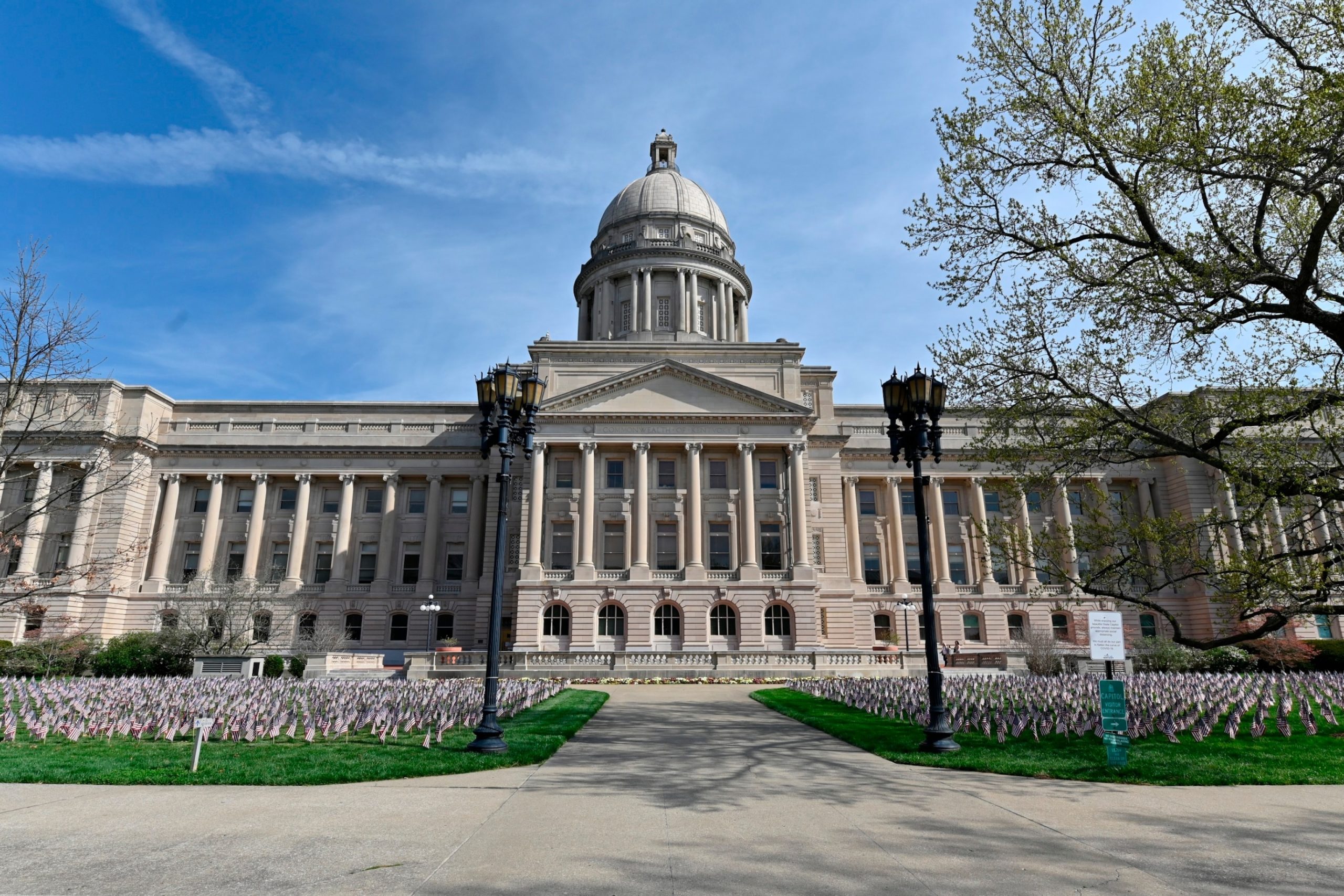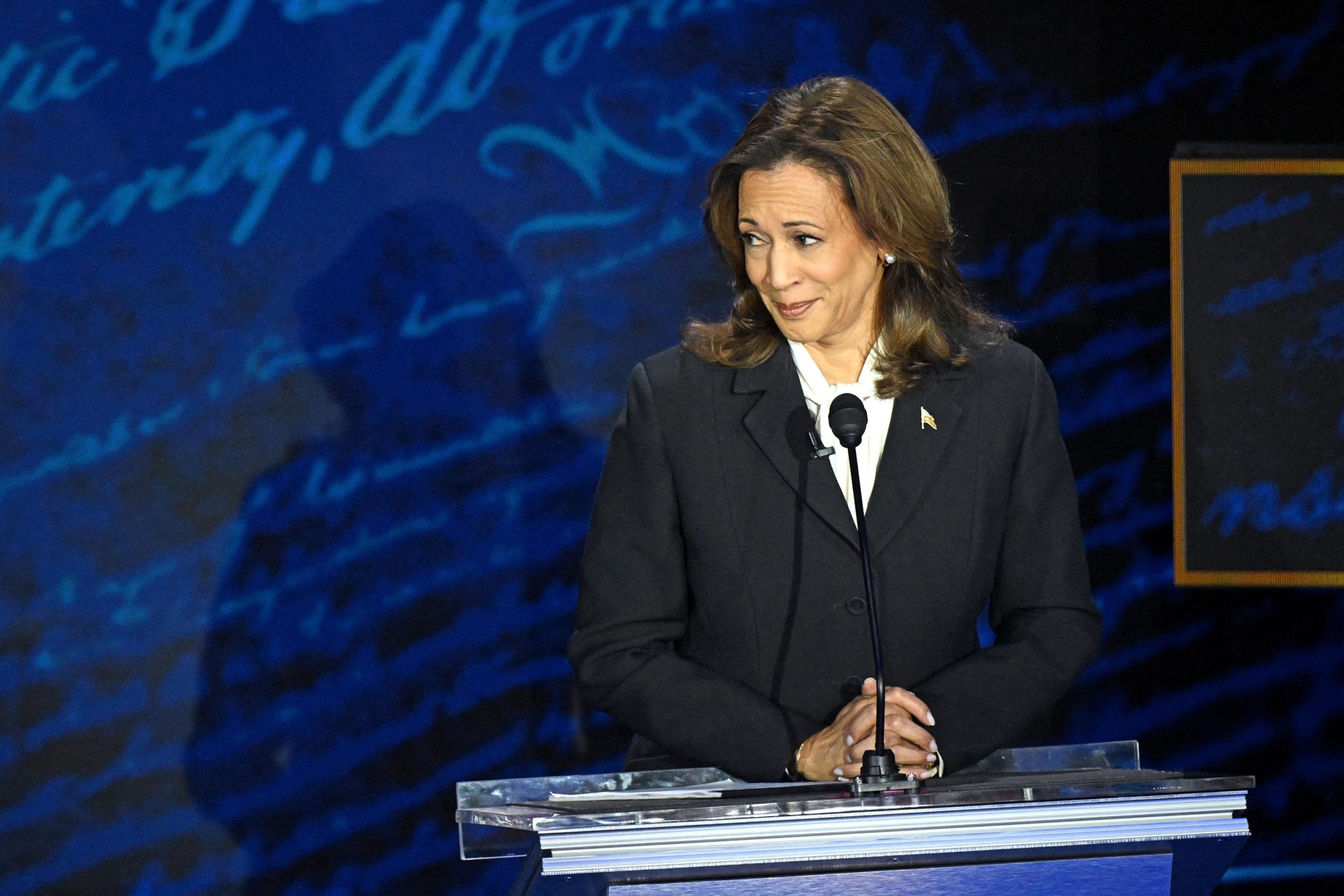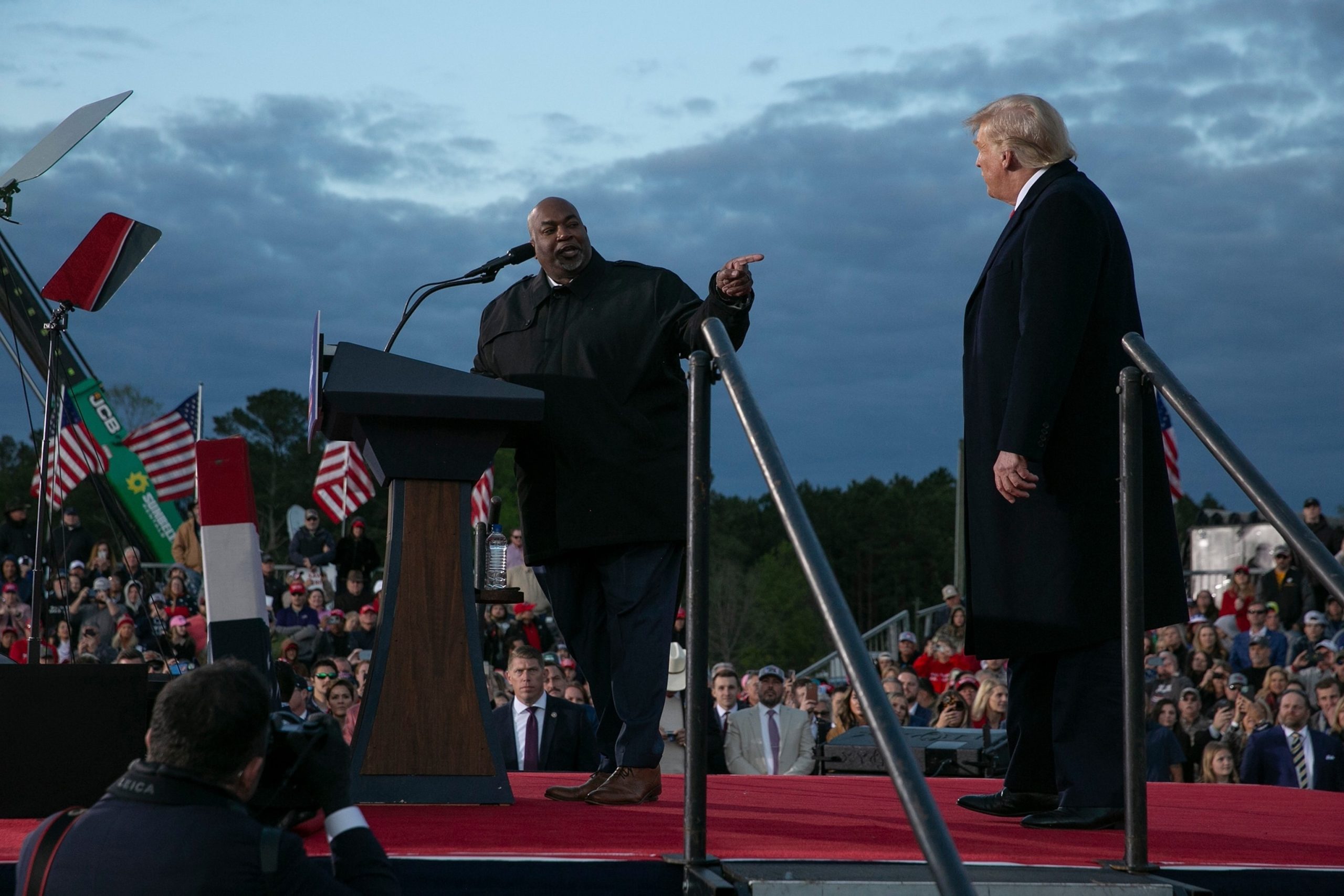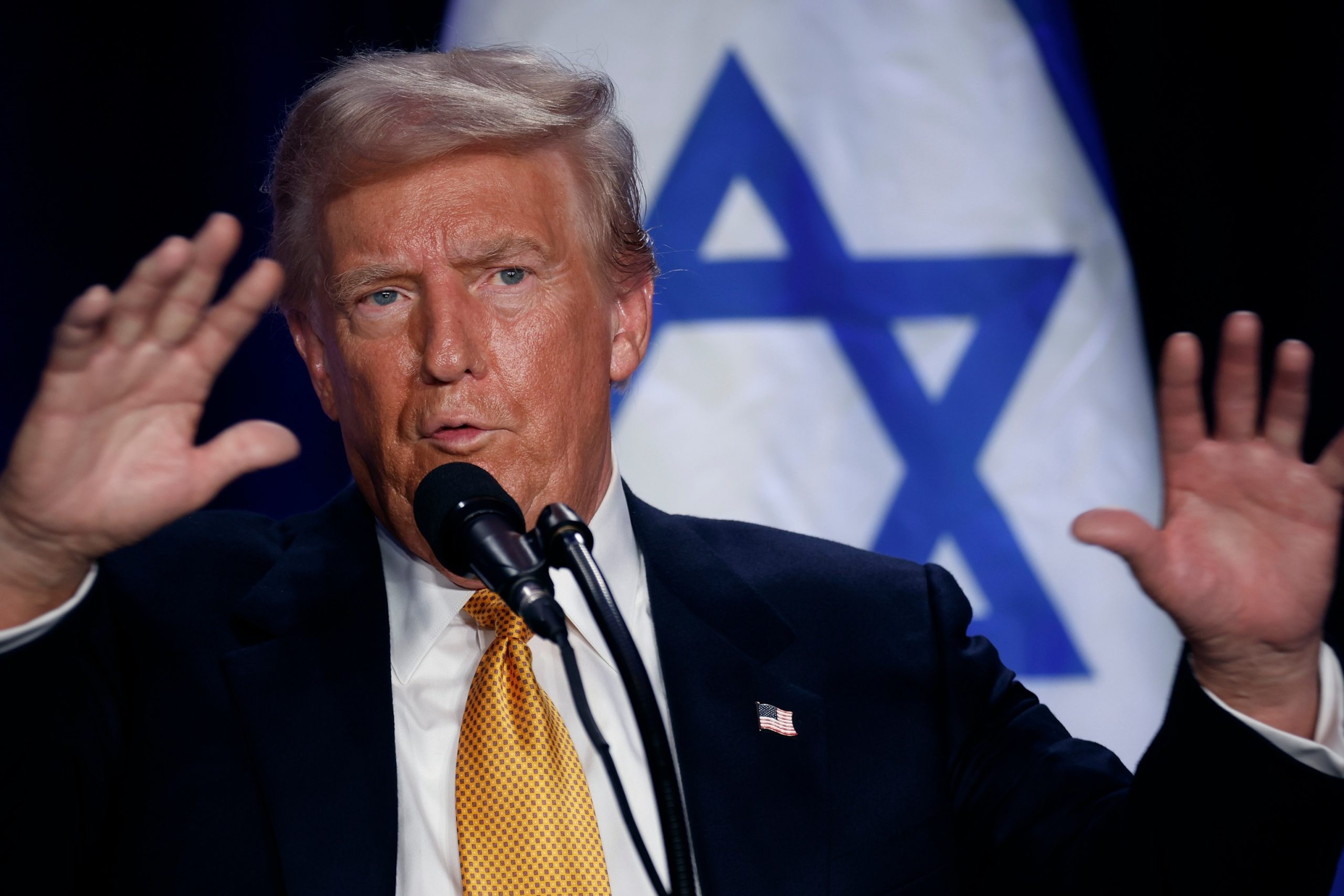The Democratic National Committee announced Monday it will give nearly $2 million to state parties in 11 non-battleground states in the months ahead of elections in November — first-of-its-kind investments in on-the-ground organizing, data infrastructure and voter-turnout efforts specifically targeting certain places that aren’t at the heart of the presidential or congressional battlefield.
This spending in Maryland, Texas, Colorado, Indiana, Kansas, Minnesota, Nebraska, New Mexico, South Dakota, Utah and Washington will target high-profile races like the U.S. Senate contest in Maryland, but also do things like get out indigenous voters in places such as South Dakota and mobilize residents of apartment buildings in Minnesota.
According to an announcement shared first with ABC News, the new investments are meant to “strategically” leverage the party’s sizable war chest in order to boost Democratic victories in down-ballot races across the country ahead of November — contests that come in tandem with the 2024 presidential election.
“Everywhere Democrats are on the ballot this November — from the school board to the White House — we’re fighting to win,” said DNC Chair Jaime Harrison said in a statement.
“As we work hand and hand with the Biden-Harris campaign to hold the White House, we’re investing now to build infrastructure and win big up and down the ballot because we know the stakes couldn’t be higher. This latest investment is a boost to the DNC’s record-setting support for state parties under President Biden, the best Party-builder Democrats have had in decades,” Harrison said.
He added that the “ongoing investments will drive Democratic wins so that we can safeguard our fundamental freedoms, be it in red, purple, or blue states across America.”
The DNC said that under the leadership of Harrison and President Joe Biden, Democrats have prioritized their support for state parties, increasing yearly investment by 25%. Total funding to Democratic state parties now reaches more than $20 million for this election cycle.
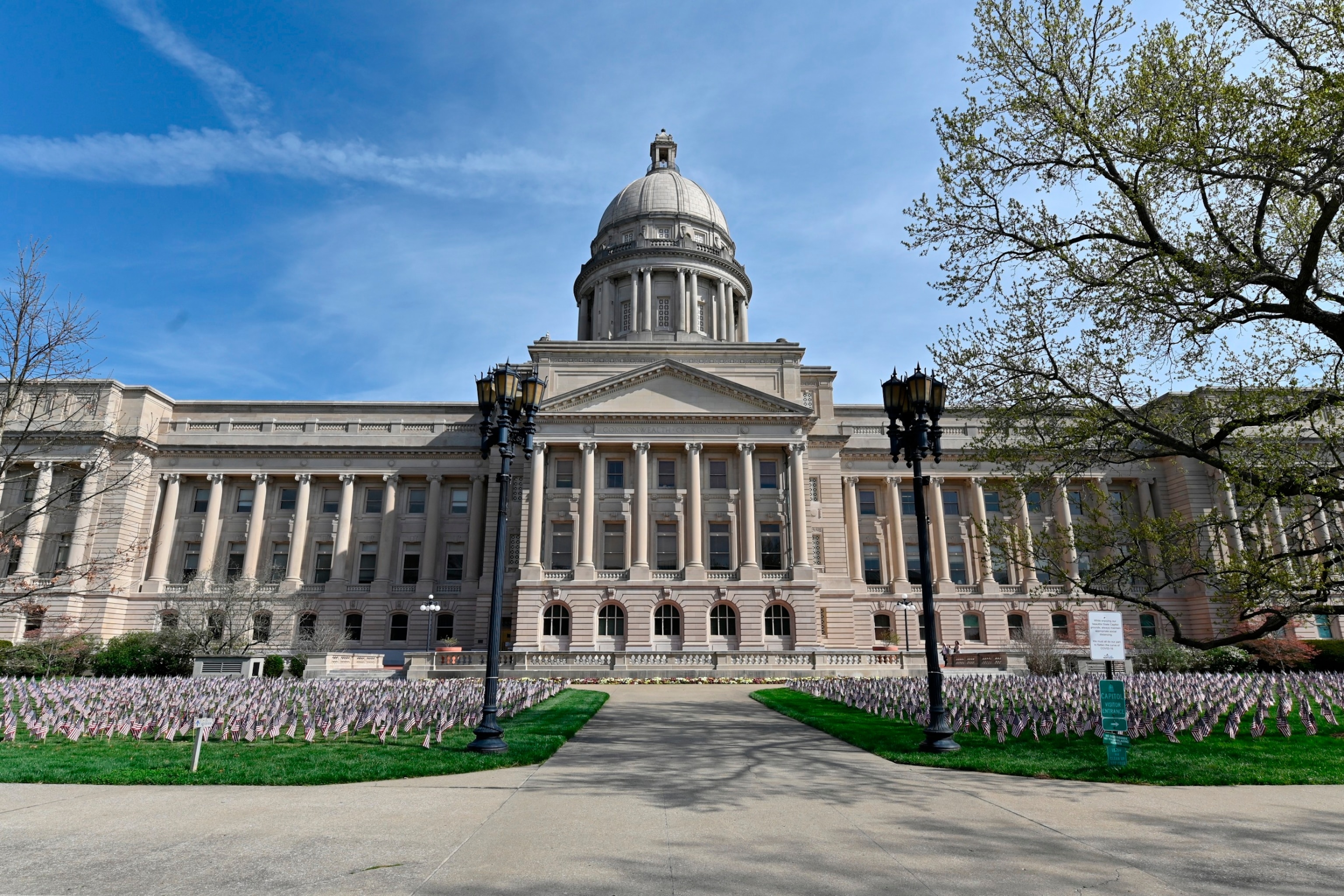
The Kentucky State Capitol is seen, April 7, 2021, in Frankfort, Ky.
Timothy D. Easley/AP, FILE
The Biden campaign and the Democratic Party together raised more than $187 million in the first three months of this year, according to Federal Elections Commissions filings, with the party touting the figure as the highest total amassed by any Democratic candidate in history by that point in the cycle.
Entering the second quarter of this year, the Biden campaign and the Democratic Party had a nearly $100 million cash-on-hand advantage over former President Donald Trump’s campaign and the Republican Party, but the GOP has been out-raising the Democrats in recent weeks.
Trump’s campaign and the Republican Party raised $141 million in the month of May, the campaign claimed last week, following a big fundraising boost immediately after the former president’s guilty verdict in the New York hush-money trial.
The Trump campaign confirmed to ABC News that the $141 million includes money going to Trump’s Save America PAC, which has been covering much of Trump’s legal bills, however.
The Republican National Committee, which was overhauled earlier this year at Trump’s direction, has also put a renewed focus on state-level investment. In a memo to members obtained by ABC News, Chair Michael Whatley in March said the party was focusing on “reorganizing the field program so that our strategy is determined on a state-by-state basis.”
The RNC also hired a “liaison” in their data department “who will work with our sister committees and state parties, even in non-battleground states,” Whatley wrote in the memo.
Popular Reads
“We will cater to individual states, realizing that each state is different, and that we must evolve to more neighbor-to-neighbor, precinct-level organizing, as the Trump campaign successfully did for the Iowa caucuses,” Whatley wrote, noting that the party would also focus on organizing in communities that are not traditionally Republican, and dispelling reports that they would shutter community centers nationwide.
State-specific investments across the eleven states
A portion of the new DNC spending will be in traditionally blue states with federal races. In Maryland, $250,000 will help fund a coordinated campaign staff and organizers for Democratic nominee Angela Alsobrooks, who is competing in a critical U.S. Senate race centered around abortion messaging.
In New Mexico, the DNC is putting more than $70,000 toward organizing staff for Rep. Gabe Vasquez’s reelection rematch against Republican candidate Yvette Herrell in the 2nd congressional district.
But the majority of the money will go toward supporting Democrats in red states where there are somewhat attainable objectives. For example, the party said it’s attempting to help its candidates gain in the Texas Senate race by hiring organizers who will register voters and drive up turnout among younger and more diverse portions of the electorate. The DNC is spending $140,000 to mobilize communities in “diverse Texas regions.”
In Kansas, Democrats are attempting to break up the state’s legislative supermajority — a goal they are one seat away from in both chambers. The DNC is spending $55,000 to also hire new organizing staff for those efforts, while also boosting the reelection campaign of Rep. Sharice Davis.
In deeply red Indiana, the party is contributing five figures to help support “legislative races in the central part of the state, where Democrats are fighting to hold the seats of three incumbent state legislators and targeting five Republican seats,” according to the DNC. Four seats allow Democrats to break the GOP supermajority for the first time in 12 years, the DNC highlights.
Utah Democrats are planning to run their first coordinated campaign since 2016, with the DNC boosting the efforts by investing $45,000. In Nebraska, the party is putting forth $40,000 to fund rural organizers in the state’s 2nd congressional district — one of the most competitive as it encompasses Omaha and Council Bluffs, some of the more purple parts of the state.
Six-figure investments will also be provided to hire AAPI, youth and Native American organizers in Washington, Colorado and South Dakota, respectively.
In South Dakota, efforts to increase voter participation among Native Americans come as voter registration within the population has declined in the state, according to the DNC. The party is investing $70,000 to fund a statewide “ride to the poll” voter registration program for Native communities, to support candidates from West River — a portion of the state located west of the Missouri River, and to hire new staff.
In Minnesota, a state with one of the highest apartment renting rates in the country, the DNC is contributing more than six figures to fund the salaries of two full-time staff members dedicated to getting accurate data, and communicating with and organizing people who live in apartments in Minneapolis.
“The Democratic Party is committed to supporting the critical work state parties lead in building real trust and relationships with voters on the ground and the partnership between the DNC and state parties remains strong. Today’s announced funding, tailor made to meet the individual needs of state parties — whether in rural or urban, red or blue states — will strengthen and expand Democrats’ organizing programs for years to come as we continue our commitment to defend Americans’ interests and fundamental rights in all fifty-seven states and territories,” Association of State Democratic Committees President Ken Martin said in a statement.
ABC News’ SooRin Kim and Hannah Demissie contributed to this report.
The Democratic National Committee (DNC) recently announced a significant investment of $2 million in 11 non-battleground state parties in an effort to support down-ballot races. This move comes as part of the DNC’s broader strategy to strengthen the party’s presence and competitiveness at all levels of government, not just in key swing states.
The investment will be distributed among state parties in states that are traditionally considered safe for Democrats, such as California, New York, and Illinois. While these states may not be battlegrounds in presidential elections, they still play a crucial role in shaping the political landscape at the local and state levels.
By investing in these non-battleground states, the DNC aims to bolster Democratic candidates running for positions such as state legislatures, governorships, and other down-ballot races. These races are often overlooked but are essential for building a strong foundation for the party and enacting progressive policies at the state level.
The funds will be used to support a variety of activities, including voter outreach, candidate recruitment and training, and grassroots organizing efforts. By providing resources to state parties in non-battleground states, the DNC hopes to expand the party’s reach and influence beyond the traditional battlegrounds.
This investment is part of a broader effort by the DNC to rebuild and strengthen the party infrastructure nationwide. In recent years, Democrats have faced challenges in down-ballot races, losing ground in state legislatures and governorships across the country. By investing in non-battleground states, the DNC aims to reverse this trend and build a more robust and competitive party at all levels of government.
Overall, the DNC’s investment in non-battleground states is a strategic move to support down-ballot races and build a stronger Democratic Party presence across the country. By focusing on states that are traditionally safe for Democrats, the DNC hopes to lay the groundwork for future electoral success and advance progressive policies at the state level.
